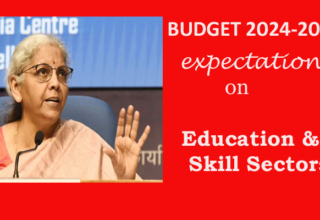
From captivating space exploration to engineering, mechatronics, data science, public policy and astronomy, Space Education has a lot to offer for students both as an interesting science and career says Narayan Bhargava, Founder and CMD of Narayan Bhargava Group
In India, there are exciting opportunities for space enthusiasts. The Indian National Space Promotion and Authorization Centre (IN-SPACE) and ISRO offer cutting-edge courses on orbital mechanics, navigation, and more. These programs empower students to contribute to India’s space missions, shaping the country’s journey among the stars.
The Indian Institute of Remote Sensing (IIRS) in Dehradun offers specialized training in geospatial technology and applications. From remote sensing to GIS, students gain hands-on experience in analyzing Earth’s data from space. There are even faculty development programs sponsored by ISRO, spreading knowledge in remote sensing and GIS across various sectors.
Apart from all the courses above, The Indian Institute of Space Science and Technology (IIST) offers a variety of programs related to space science and technology. These programs are designed to help students understand how satellites work, how to design spacecraft, and how to analyze data from space missions. They offer undergraduate, postgraduate, and doctoral programs in areas like Aerospace Engineering, Avionics, and Physical Sciences. Essentially, IIST teaches students the ins and outs of space exploration, from building rockets to studying celestial bodies. It’s like a school where one can learn all about the amazing things happening beyond our atmosphere!
In fact, space education is a gateway to endless possibilities. Whether you’re gazing at the stars or crunching data from space, there’s something for everyone. With the right knowledge and skills, students in India and beyond can join humanity’s quest to unravel the mysteries of the universe and reach for the stars.
Space education offers a fantastic opportunity for students to dive into the captivating world of space exploration. It’s not just about astronauts floating in space; it’s about understanding the mysteries of the universe, designing spacecraft, exploring distant planets, and even pondering upon the existence of life beyond Earth.
Imagine studying stars, galaxies, and planets—this is what astrophysics and astronomy programs are all about. Students delve into the secrets of celestial bodies, learning about their structures and the laws that govern them. Some lucky ones even get to work on hands-on projects where they observe the night sky or crunch numbers on powerful computers to unlock the wonders of cosmos.
Then there’s space engineering, where students learn to build and operate spacecraft. They dive into satellite systems, propulsion systems, and spacecraft design—essential skills for shaping the future of space technology. It’s like being part of the team that sends rockets soaring into the sky. For those fascinated by rocks and dust beyond Earth, there’s planetary science and geology. Students explore the surfaces and atmospheres of planets and moons, decoding their histories and compositions. They might even analyze data from space missions, like detectives piecing together clues from distant worlds.
Talking about mechatronics for space programs, one can learn to build robots and machines for exploring and working in space. These courses teach how to design, control, and maintain smart systems like robotic arms and space rovers. One can discover how sensors, motors, and computers work together to make these machines function smoothly in the challenging conditions of space. By studying mechatronics for space, students get equipped to contribute to exciting projects like satellite repair, planetary exploration, and space station maintenance, extending humanity’s reach beyond Earth.
Space policy and administration are also crucial. Think about the rules and regulations needed for the bustling space industry. As more countries and companies venture into space, there’s a growing need for experts who can navigate the legal and ethical maze of space exploration. Then there’s astrobiology and exobiology—searching for signs of life beyond our planet. It’s like looking for aliens, but with a scientific twist. Students study biology, chemistry, and planetary science, pondering the possibility of life elsewhere in the universe.
Data from space is pouring in faster than ever. That’s where space data science and remote sensing come in. Students learn to sift through mountains of data collected by satellites, unlocking insights about Earth, other planets, and the vastness of space itself. It’s like being a cosmic detective, analyzing clues from afar.










